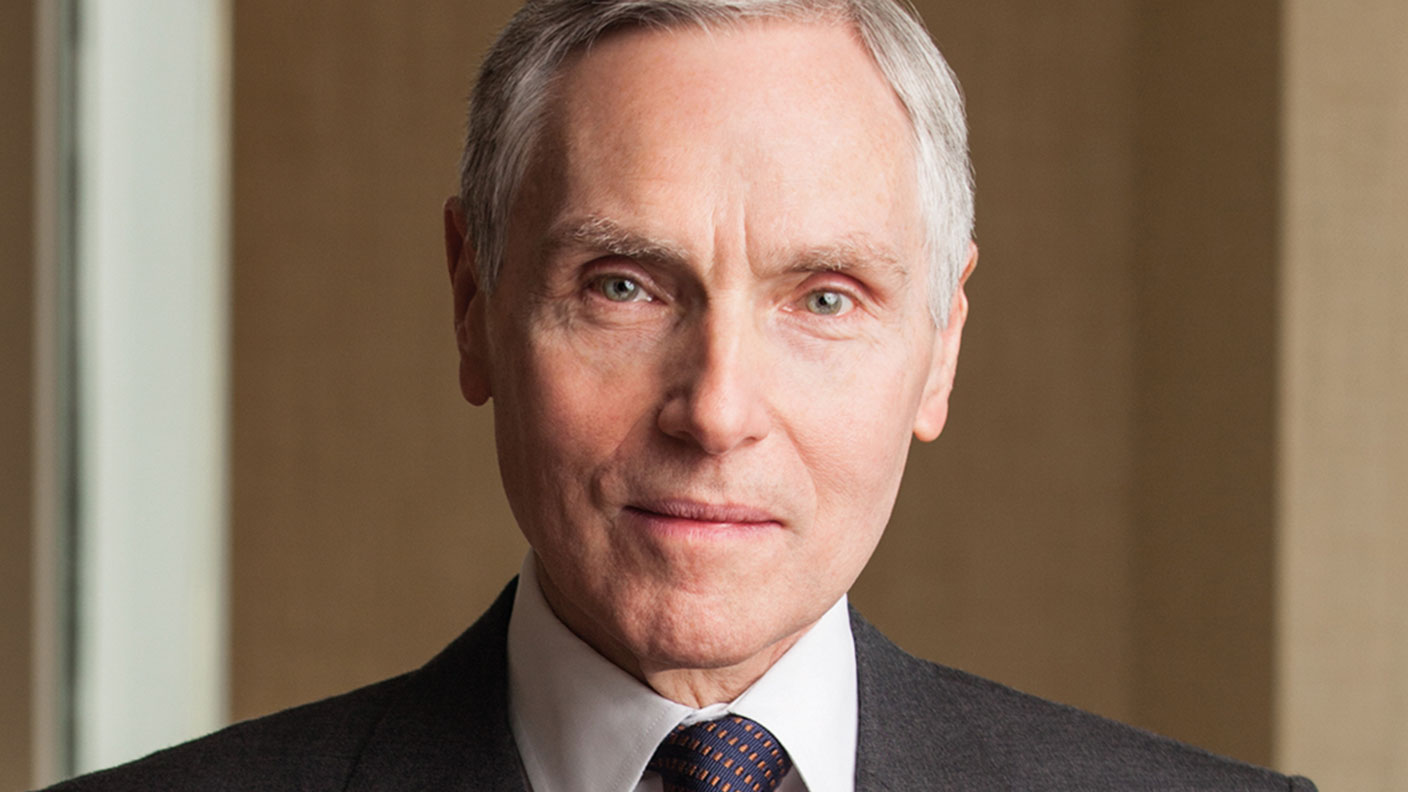Seven firms ripe for a shake-up by activist investors
Activist investors have a reputation as asset strippers, but they perform a valuable role, says Matthew Lynn


Get the latest financial news, insights and expert analysis from our award-winning MoneyWeek team, to help you understand what really matters when it comes to your finances.
You are now subscribed
Your newsletter sign-up was successful
Want to add more newsletters?

Twice daily
MoneyWeek
Get the latest financial news, insights and expert analysis from our award-winning MoneyWeek team, to help you understand what really matters when it comes to your finances.

Four times a week
Look After My Bills
Sign up to our free money-saving newsletter, filled with the latest news and expert advice to help you find the best tips and deals for managing your bills. Start saving today!
Edward Bramson’s Sherborne Investors has finally called time on its campaign against Barclays. In 2018, the activist investor built up a 6% stake in the bank, and used that shareholding to campaign for the removal of the chief executive, and a shake-up of its management and strategy. Not many other investors got on board, however. Last week, he finally called it a day. But if Bramson wants to move on to another company, he won’t be short of targets. Quite a few other chief executives should be feeling nervous.
A pharma giant stumbles
Activist investors have a bad reputation. They are portrayed as greedy asset-strippers, intent on destroying fine old businesses that their staff and customers love. But they play a crucial role in a free-market system. Professional managers often turn into a self-selecting oligarchy who pay themselves vast sums of money for doing very little. It is hard for shareholders to exert any real discipline over them, beyond the occasional protest vote, and a full takeover bid is usually ruinously expensive, loading up a business with debt that can often bankrupt it. The activists simply build up a significant stake at their own expense and then put pressure on the management to shape-up. Without them, firms risk drifting on forever until they finally disappear.
So where should Bramson look for fresh targets? GlaxoSmithKline (GSK) is already, rightly, on the radar of Bramson’s fellow activist investor Elliott Management. While AstraZeneca and Pfizer have been making headlines in the Covid-19 crisis, GSK has been invisible: its one vaccine candidate, developed in partnership with Sanofi, is nowhere close to the market. Under Emma Walmsley, the drugs firm has been consistently disappointing, and her plan to split its consumer and pharmaceuticals division isn’t exciting anyone. The shares have drifted for years. Elliott is already pressing for changes, but two or three shareholders joining forces might finally push Walmsley into leaving the company.
MoneyWeek
Subscribe to MoneyWeek today and get your first six magazine issues absolutely FREE

Sign up to Money Morning
Don't miss the latest investment and personal finances news, market analysis, plus money-saving tips with our free twice-daily newsletter
Don't miss the latest investment and personal finances news, market analysis, plus money-saving tips with our free twice-daily newsletter
With retailing still in crisis, it is surely time for Marks & Spencer (M&S) to make up its mind whether it wants to be a clothes or a food company. Its strange hybrid looks well past its sell-by date, and it has long since lost its grip on the fashion market. It should split itself up and sell itself off: if Boohoo are willing to buy brands such as Wallis and Dorothy Perkins to appeal to a different demographic online, they might well want M&S as well; the food business might fit with Amazon, or be fully taken over by its existing partner, Ocado. Both would be a better option than yet another relaunch no one has much faith in.
Unilever is another candidate. There is nothing wrong with its commitment to environmental and social issues, especially at a time when consumers want brands to have a conscience. Yet the shares are no higher now than they were four years ago. The company needs to dial down the woke agenda and focus on growth.
Managing decline
Lloyds has made a full recovery from the catastrophe that followed its takeover of HBOS in the wake of the financial crash. But while the last decade was all about steadying the ship and rescuing the balance sheet, under its new CEO Charlie Nunn it needs to start expanding again.
The two great oil giants, BP and Shell, that dominate the London market talk a lot about their plans to convert to green energy. But there might well be a different path for them. The tobacco conglomerate BAT has accepted that smoking is in long-term decline, but in the meantime it has been fantastically profitable for shareholders. An activist shareholder could persuade both companies it was better to be cash-generating machines in an industry on the way out than one that is always struggling to re-invent itself against newer rivals.
Finally, BT has recently overhauled its management and been rewarded with a recovery in its burnt out share price. But even so, the BT Sport fiasco, which saw the company spend billions on an eccentric foray into football broadcasting, is still a huge headache. It needs a complete overhaul.
Get the latest financial news, insights and expert analysis from our award-winning MoneyWeek team, to help you understand what really matters when it comes to your finances.

Matthew Lynn is a columnist for Bloomberg and writes weekly commentary syndicated in papers such as the Daily Telegraph, Die Welt, the Sydney Morning Herald, the South China Morning Post and the Miami Herald. He is also an associate editor of Spectator Business, and a regular contributor to The Spectator. Before that, he worked for the business section of the Sunday Times for ten years.
-
 How a ‘great view’ from your home can boost its value by 35%
How a ‘great view’ from your home can boost its value by 35%A house that comes with a picturesque backdrop could add tens of thousands of pounds to its asking price – but how does each region compare?
-
 What is a care fees annuity and how much does it cost?
What is a care fees annuity and how much does it cost?How we will be cared for in our later years – and how much we are willing to pay for it – are conversations best had as early as possible. One option to cover the cost is a care fees annuity. We look at the pros and cons.
-
 Profit from MSCI – the backbone of finance
Profit from MSCI – the backbone of financeAs an index provider, MSCI is a key part of the global financial system. Its shares look cheap
-
 'AI is the real deal – it will change our world in more ways than we can imagine'
'AI is the real deal – it will change our world in more ways than we can imagine'Interview Rob Arnott of Research Affiliates talks to Andrew Van Sickle about the AI bubble, the impact of tariffs on inflation and the outlook for gold and China
-
 Three promising emerging-market stocks to diversify your portfolio
Three promising emerging-market stocks to diversify your portfolioOpinion Omar Negyal, portfolio manager, JPMorgan Global Emerging Markets Income Trust, highlights three emerging-market stocks where he’d put his money
-
 Exciting opportunities in biotech
Exciting opportunities in biotechBiotech firms should profit from the ‘patent cliff’, which will force big pharmaceutical companies to innovate or make acquisitions
-
 What turns a stock market crash into a financial crisis?
What turns a stock market crash into a financial crisis?Opinion Professor Linda Yueh's popular book on major stock market crashes misses key lessons, says Max King
-
 The state of Iran’s collapsing economy – and why people are protesting
The state of Iran’s collapsing economy – and why people are protestingIran has long been mired in an economic crisis that is part of a wider systemic failure. Do the protests show a way out?
-
 The rise and fall of Nicolás Maduro, Venezuela's ruthless dictator
The rise and fall of Nicolás Maduro, Venezuela's ruthless dictatorNicolás Maduro is known for getting what he wants out of any situation. That might be a challenge now
-
 New year, same market forecasts
New year, same market forecastsForecasts from banks and brokers are as bullish as ever this year, but there is less conviction about the US, says Cris Sholto Heaton